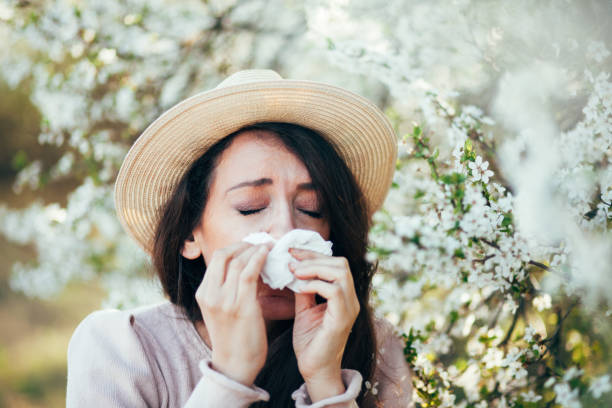Pollen is a common trigger for seasonal allergies, also known as hay fever or allergic rhinitis. In this blog, we will discuss the causes, symptoms, and treatment of pollen allergies.

Causes of Pollen Allergies
Pollen allergies occur when the immune system overreacts to pollen. Pollen is a fine powder released by plants during their reproductive cycle. When pollen is inhaled, the immune system responds by releasing histamine and other chemicals that cause allergic symptoms. The causes of pollen allergies can vary, but the most common reasons include:
-
Exposure to Pollen: Exposure to pollen is the most common cause of pollen allergies. Pollen is most prevalent during the spring and summer months when plants are actively pollinating.
-
Genetics: Some people may have a genetic predisposition to develop pollen allergies.
-
Other Allergies: People who have other allergies, such as food allergies or animal allergies, may be more likely to develop pollen allergies.
Symptoms of Pollen Allergies
The symptoms of pollen allergies can vary from mild to severe and can include:
- Sneezing
- Runny or stuffy nose
- Itchy eyes, nose, or throat
- Coughing
- Wheezing
- Skin rash
- Difficulty breathing (in severe cases)
It is important to note that not all adverse reactions to pollen are allergies. Some reactions can be irritations or infections, which can cause similar symptoms but do not involve the immune system. However, if you experience any of the symptoms listed above during the pollen season, it is important to seek medical attention immediately.
Treatment of Pollen Allergies
If you have a pollen allergy, the best way to prevent a reaction is to avoid exposure to pollen. Depending on the severity of the allergy, your doctor may prescribe antihistamines or decongestants to help alleviate symptoms. In severe cases, your doctor may prescribe immunotherapy, which involves gradually exposing your immune system to small amounts of the allergen to help it become less sensitive.
Prevention of Pollen Allergies
While it is not always possible to prevent pollen allergies, there are some steps you can take to reduce your risk:
-
Stay Indoors: Stay indoors as much as possible during the pollen season, especially on windy days when pollen counts are high.
-
Keep Windows Closed: Keep windows and doors closed during the pollen season to prevent pollen from entering your home.
-
Use Air Conditioning: Use air conditioning to help control indoor air quality and prevent pollen from entering your home.
-
Wear a Mask: If you must be outdoors during the pollen season, wear a mask to help prevent inhaling pollen.
-
Wash Your Clothes: Change your clothes and wash them immediately after spending time outdoors during the pollen season to remove any pollen that may have accumulated on them.
In conclusion, pollen allergies can cause a range of symptoms from mild to severe. By avoiding exposure to pollen, you can prevent a reaction. By staying indoors, keeping windows closed, using air conditioning, and wearing a mask, you can help prevent pollen from entering your home. If you suspect that you have a pollen allergy, seek medical attention to help alleviate symptoms and prevent future reactions.












